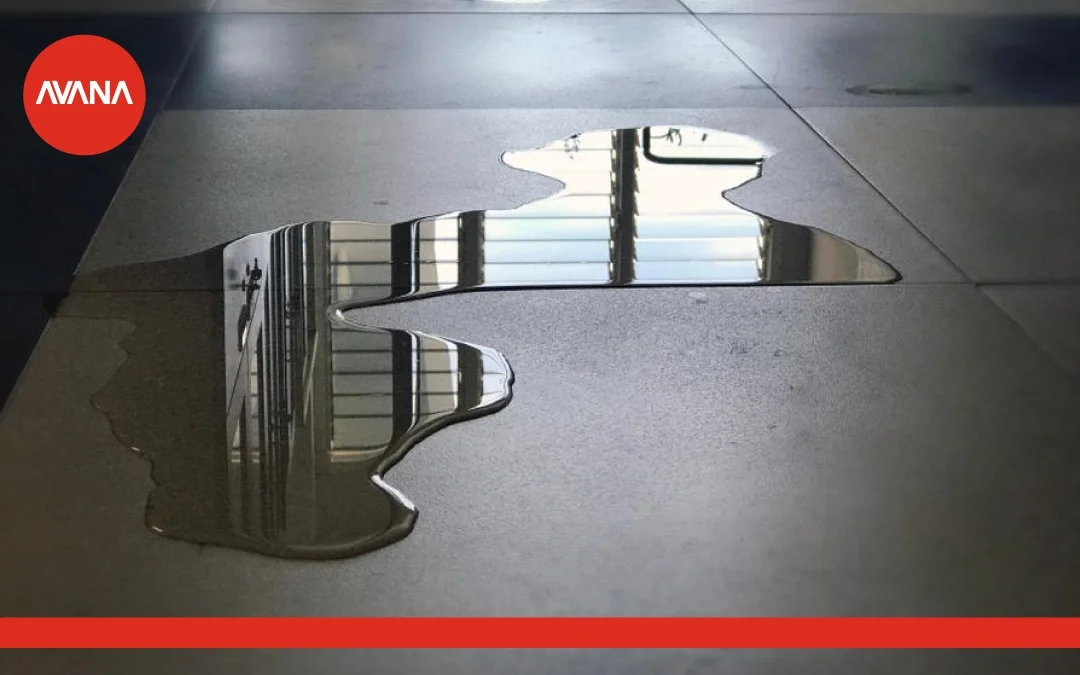Epoxy flooring is well-known for being waterproof, which makes it a great choice for different uses, especially in places like garages that get wet can help you . Its waterproof feature comes from its special chemical makeup and the way it hardens, creating a strong, interwoven polymer structure. This makes a smooth, waterproof surface that protects the concrete underneath from water damage and is also durable and easy to maintain. Thus, epoxy flooring is a strong and practical option for both homes and businesses where keeping out moisture is important. Epoxy is the best but you should work with professional installers. Epoxy flooring brisbane can really help you.
What Happens When You Pour Water on an Indoor Epoxy Floor?
Have you ever considered what happens when you spill water on an epoxy floor? The usual thing that will happen is that it beads up and runs off without leaving a trace. Epoxy is water-resistant and this is actually one of the reasons it is a favorite for areas that usually have moisture, such as kitchens.
Kitchen epoxy flooring does an excellent job of protecting against any potential problems with moisture. But if water sits on the surface for a longer duration, it will eventually penetrate the available pores and dislodge the underlying concrete. Besides, an epoxy floor that has been poorly sealed or shows weak sealing over time will be more vulnerable to water-related complications.
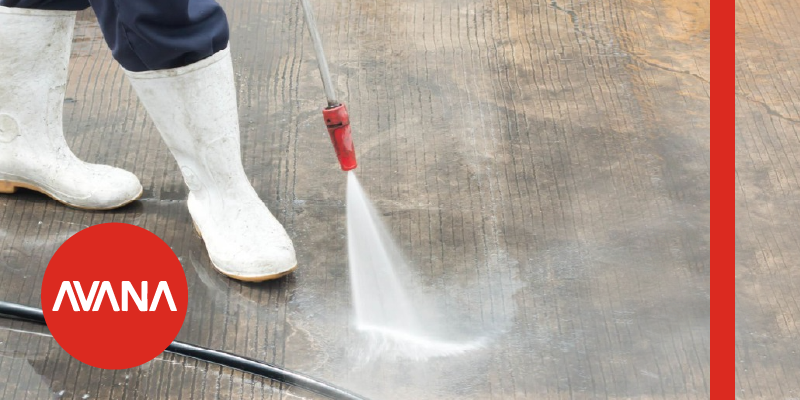
To ensure that your epoxy floor remains in top condition, follow these tips:
- Learn how to maintain an epoxy floor properly.
2-Partnering with professional installers is incredibly important.
An unprofessional installer can jeopardize the entire project, resulting in expensive repairs and setbacks. That’s why it’s vital to always choose the best. For top-quality epoxy flooring that offers both durability and style, turn to garage epoxy flooring brisbane leading experts. Their expertise and commitment guarantee a perfect finish every time.
How does water affect epoxy?
Water can find its way to affect epoxy floors in several ways. Here’s how epoxy is considered waterproof:
1. Good Adherence
Epoxy adheres very well to a surface and, when it cures, gives a close, tight impermeable layer. That means water cannot pass through.
2. Brittleness and Cracks
Sometimes, epoxy is brittle and therefore cracks if the surface underneath does. Water will be able to flow through these cracks, although without them, water cannot pass through the epoxy.
3. Strong Adhesive Bonding
Epoxy is not easily removable from a surface due to very strong adhesive bonding; hence, water will not be allowed to penetrate through the gaps.
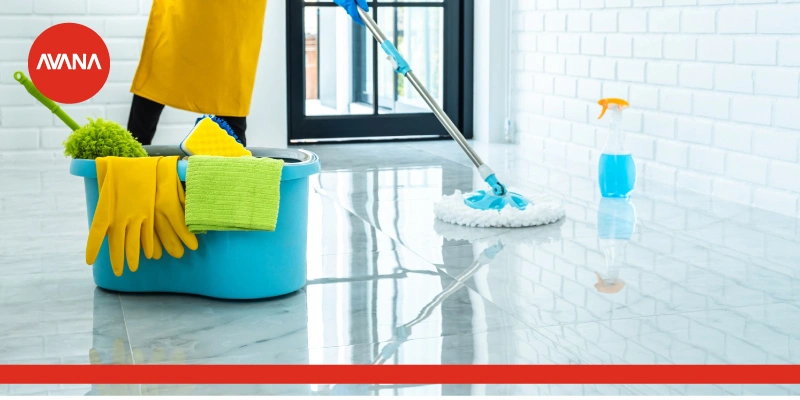
What Damages Epoxy Flooring?
1. Unprofessional Installation
Epoxy flooring is seriously damaged through the installation process. Make sure you employ qualified installers.
2. Thin Epoxy Layer
An epoxy layer that is too thin can’t take much wear and tear.
3. Moisture Vapor Transmission
The likes of oil are likely to cause contamination of the substrate and, in some instances, damage it.
4. Cracks on the Substrate
Cracks can be evidenced through the epoxy, leading to loss of bond on the area contiguous to the crack.
5. Inadequate Preparation
Failure to prepare the surface properly can lead to damage later on.
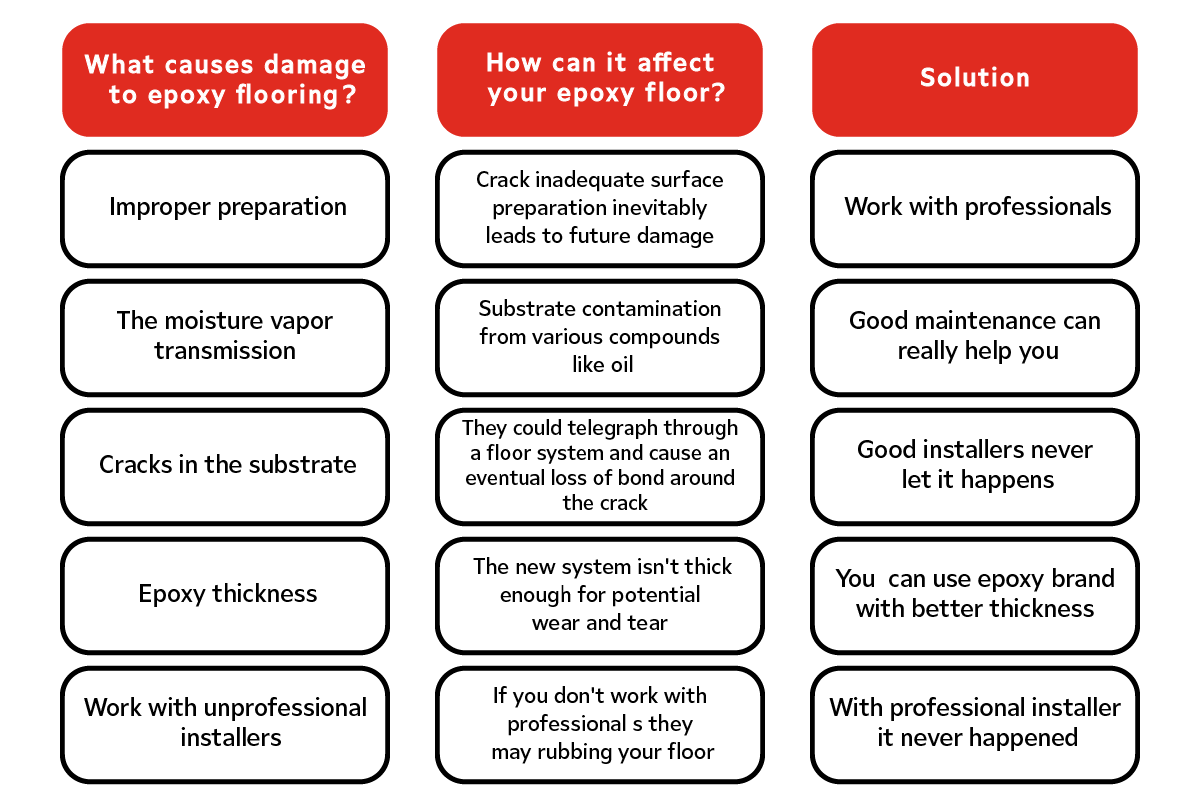
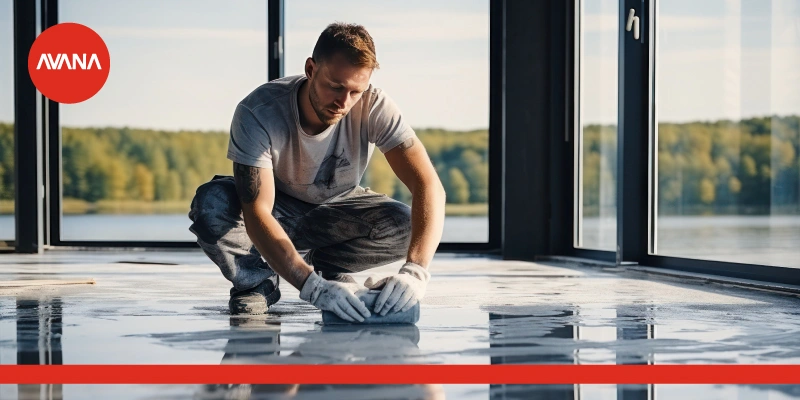
Can water damage the epoxy floor?
Usually, any surface water that sits on an epoxy floor is not much of a problem. This should only be followed with a good disinfecting clean once the water gets to evaporate. An epoxy floor that is professionally installed is water-resistant, thus it will be protecting whatever kind of substrate is lying under the concrete. The other side of the coin, however, is that concrete substrates are porous; thus, they could hold water, leading to cracks, contamination, and odor that can lead to failure in the epoxy.
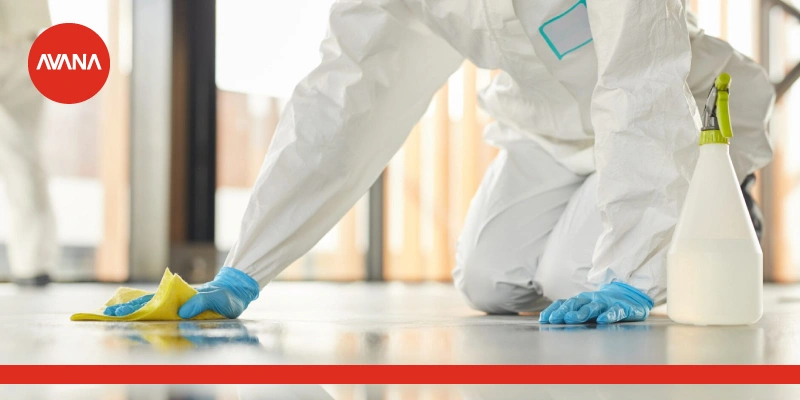
Epoxy floors resist water very well if you pay attention to curing, application, and formula. Working with experts ensures successful use of waterproof epoxy flooring. We have also discussed how water affects the floor, made up of epoxy, and given some tips on becoming more resistant and preventive against it. Hope this helps you make a good decision for your floors!
FAQ
Is epoxy flooring waterproof?
Yes, epoxy flooring is highly water-resistant, making it suitable for moisture-prone areas.
Can water damage epoxy flooring?
Water can damage epoxy flooring if it penetrates cracks or poorly sealed areas, affecting the underlying substrate.
How do you maintain epoxy flooring?
Regular cleaning, prompt attention to spills, and professional installation are key to maintaining epoxy flooring.
Is professional installation necessary for epoxy flooring?
Oil, car chemicals and other chemicals.

